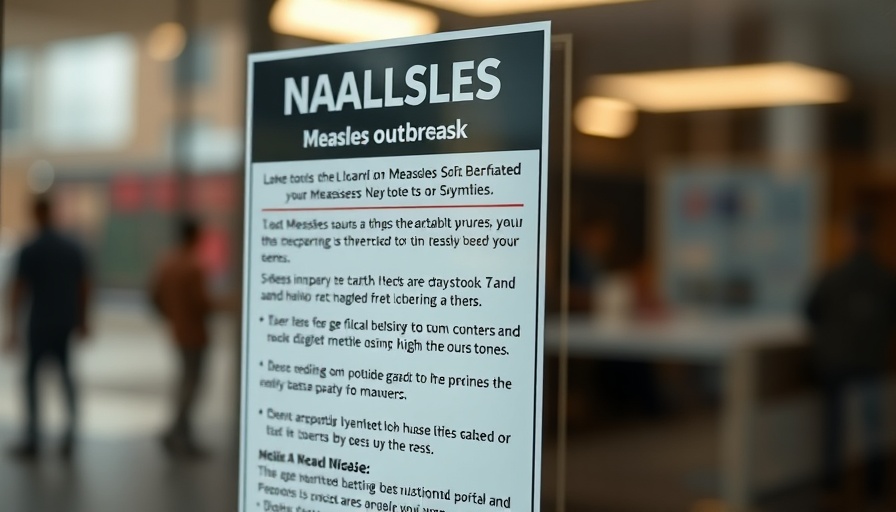
The Shift in Messaging Around Vaccination
Recent events surrounding a measles outbreak in Texas, where cases have surged to 124, raise concerns about the current administration's messaging on vaccinations. Unlike past crises, such as a similar outbreak in New York in 2019, where the focus was firmly on the importance of immunization, this administration's approach seems to tiptoe around the subject. In 2019, the response was clear and direct from leaders including Robert Redfield, former director of the CDC, emphasizing that measles is preventable through vaccinations and that the suffering experienced during outbreaks is avoidable. Now, however, the narrative appears more muted.
Public Health Messaging Matters
The recent Cabinet meeting reflects this shift. When asked about the Texas measles outbreak, President Trump deferred to Health Secretary Robert F. Kennedy Jr., a long-time vaccine skeptic. Instead of reaffirming the critical role of vaccinations, Kennedy downplayed the situation, presenting misleading data about the number of deaths. Public health experts expressed concern that this lack of clear, assertive messaging could fuel vaccine hesitancy, especially when the CDC has historically taken a strong stand during health crises.
The Importance of Clear Communication
In public health, clear and consistent communication is crucial. Typically, health officials would use such media opportunities to advocate for vaccinations, especially in light of preventable diseases. The failure to do so in this instance could have repercussions, as data shows the majority of cases in the ongoing outbreak involve unvaccinated individuals. Silence from the CDC and the administration raises alarms about the potential normalization of skepticism around vaccines, which experts like Paul Offit and Jason Schwartz warn could undermine public health efforts significantly.
A Broader Concern: Public Trust
Trust in health organizations is critical. Recent challenges, particularly during the pandemic, have often placed public health authorities in a controversial light. Experts note that if the CDC’s silence continues, it might create an opening for doubt among the public about vaccines' efficacy. Senator Bill Cassidy's vocal advocacy for vaccination contrasts sharply with the administration's current stance, indicating an urgent need for a more unified and assertive public health message from federal authorities.
Looking Ahead: Implications of Current Responses
The ongoing outbreak and the initial hesitance from the Trump administration highlight the importance of strong public health messaging. As the CDC supports efforts in Texas and surrounding areas, the agency must step into a more vocal role to emphasize the need for vaccinations. The health of communities depends heavily on the ability of officials to inspire confidence in vaccines, especially during outbreaks. With cases rising, timely and effective communication can save lives.
 Add Row
Add Row  Add
Add 


Write A Comment